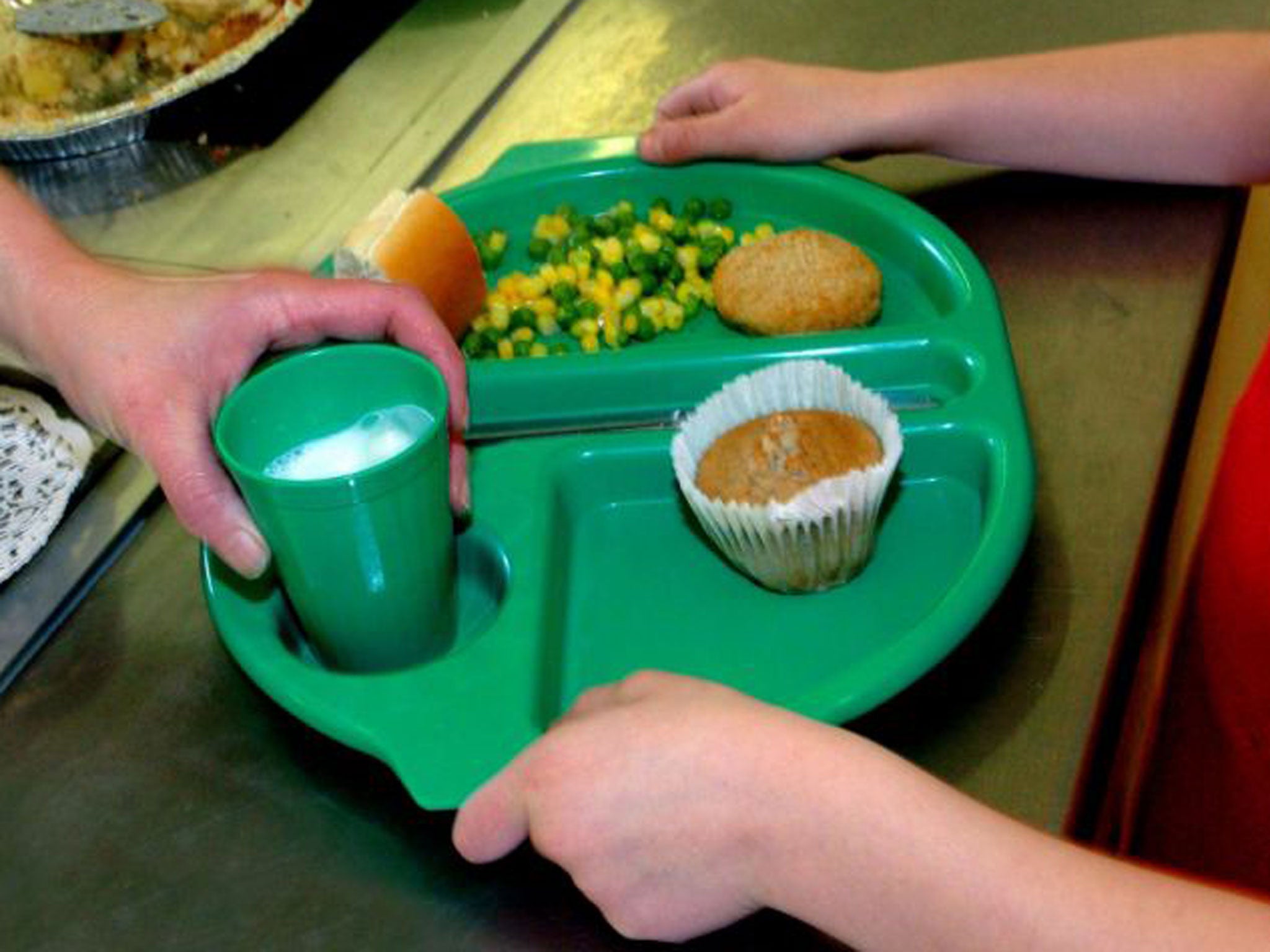Free school meals may be scrapped by councils under 'tidal wave' of cuts
Think-tank warns of 'a tidal wave of cuts that makes the 1980s look like a day at the beach'

Your support helps us to tell the story
From reproductive rights to climate change to Big Tech, The Independent is on the ground when the story is developing. Whether it's investigating the financials of Elon Musk's pro-Trump PAC or producing our latest documentary, 'The A Word', which shines a light on the American women fighting for reproductive rights, we know how important it is to parse out the facts from the messaging.
At such a critical moment in US history, we need reporters on the ground. Your donation allows us to keep sending journalists to speak to both sides of the story.
The Independent is trusted by Americans across the entire political spectrum. And unlike many other quality news outlets, we choose not to lock Americans out of our reporting and analysis with paywalls. We believe quality journalism should be available to everyone, paid for by those who can afford it.
Your support makes all the difference.Free school meals could soon be scrapped and people paid to look after elderly neighbours as councils take desperate measures to deliver a “tidal wave” of spending cuts, ministers will be warned on Tuesday.
Closures of municipal theatres, leisure centres, libraries and play groups will accelerate because of a 50 per cent reduction in local authorities’ spending power, according to a report from an independent think-tank.
The New Local Government Network said town halls will struggle to cope with a £16.5bn gulf which could, under current Coalition plans, open between their income and the demands on them.
The disparity will leave them facing huge problems meeting their commitments to care for the millions of “baby boomers” reaching old age and educate growing numbers of children.
The financial pressures could become so acute that ordinary householders could even be paid to look after elderly and vulnerable neighbours as a cheaper alternative to employing skilled carers, the organisation speculates.
Councils could scale back the entitlement of youngsters from lower-income families to free school meals and transport, charge for careers advice and even trim budgets for special needs classes.
They could also be tempted to encourage schools to turn themselves into academies so that authorities no longer have to bear the expense of running education support services.
The Network raised the alarm after George Osborne’s Budget last month signalled plans for deep cuts to non-protected areas – including local government – after the general election.
Whitehall spending will be cut by a further £11.5bn in 2015-16 and, although no figures have yet been produced for later years, academic experts calculated the reduction could be as high as £15bn by 2017-18 if the Conservatives win the next election. Cuts on that scale could also be implemented if Labour is victorious, the think-tank said.
It would amount to a 50 per cent fall in real terms in English councils’ spending power over a six-year period, forcing town halls to raise council tax and make more staff redundant.
Authorities in less prosperous areas of the North-East, Yorkshire, Lancashire and the West Midlands could be forced to make even deeper and earlier cuts than in the rest of the country, it said.
The think-tank said the cuts could dwarf the massive withdrawal of Whitehall funding to local councils by the Thatcher Government in the early 1980s.
Simon Parker, its director, told the Independent: “Local government is facing a tidal wave of cuts that makes the 1980s look like a day at the beach. On current trends, the best case scenario is that by 2018 the public will pay more for a lot less – no council leisure centres, far fewer libraries, an end to education support and tighter constraints on who receives social care. In many parts of the country, things could get a lot worse as some councils face effective bankruptcy.”
The findings emerged from a “war gaming” exercise conducted with more than 50 senior council officials in which they were challenged to produce a budget for a fictional authority, but based on real spending data and economic modelling from the Local Government Association.
Even the most imaginative efficiency savings and sharing of functions will fail to plug the gap, the Network said, and without urgent action statutory services such as education and social services could “buckle” under the strain.
In a report today, it says: “More of the same will be insufficient. Salami-slicing leaves little, to no, room for manoeuvre after 2015. Councils must readdress the type and level of services they deliver across the board.”
The Network calls for health service, police and job centre budgets to be integrated with local councils and for authorities to be given a bigger share of local economic growth.
A Department for Communities and Local Government spokesman said: “Local Government accounts for around a quarter of all public spending so it is only right that councils play their part in driving down the deficit, using their strong track-record in delivering efficiencies while maintaining frontline services.”
He said: “Every public service can be improved so that it works better and costs less by stripping out duplication and waste. Local Government budgets were protected from further reductions in 2013/14. Many councils are already finding innovative ways to save taxpayers' money.”
Hilary Benn, the shadow Communities Secretary, said: “This report clearly links the very difficult decisions that councils are having to make about the services that people value and rely on with the unfair cuts imposed by central Government. It is inevitable, given the scale of these cuts, that people locally will increasingly see a damaging effect on the civic infrastructure they have worked so hard to build over the years.”
Join our commenting forum
Join thought-provoking conversations, follow other Independent readers and see their replies
Comments